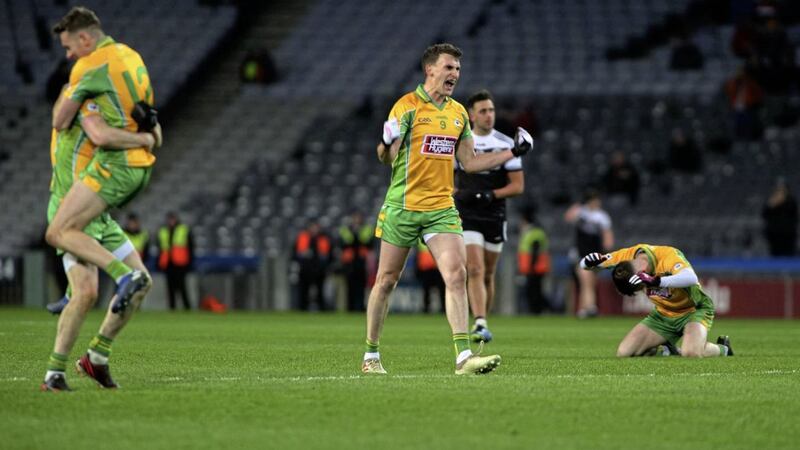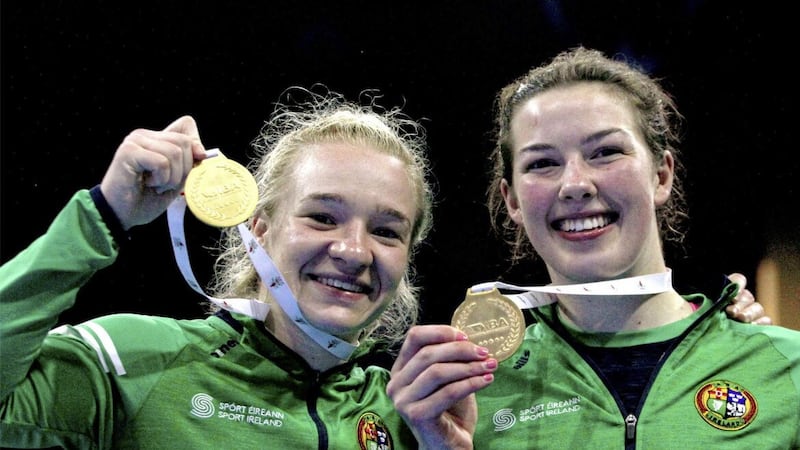IF there are two things on this earth I do not understand, one is newspaper horoscopes, and the other is people who read them.
For each sign of the zodiac, there are 625 million people on earth. Horoscopes suggest the same fate for everyone born between March 21 and April 20.
I am a Gemini.
Yesterday, this is what the world’s population of late May / early June babies were told: “Take a (calculated) risk for an important cause today, Gemini: namely, yourself! The year’s only full moon in Aquarius lands in your expansive ninth house, making this an auspicious time for stretching FAR outside your comfort zone and testing some new waters…”
It reminds me of an article I read a few years ago in a local newspaper.
The writer was previewing a certain GAA club’s chances for the season ahead.
I can’t remember the exact wording but it basically went: “As long as they start games well, finish the first half strongly, create good chances, keep the wide count down, keep their discipline and avoid injuries, they will do well.”
Thanks for that, Nostradamus.
Such sweeping statements came to mind over the weekend when thanks to a random Twitter bot, I stumbled back upon a piece I’d written in February 2018 about Nemo Rangers’ underage policy.
The reason I thought about such generalisations was partly because the whole article felt like one.
It focused on their unique and brilliant approach to participation within underage teams.
They don’t focus on winning trophies until lads are nearing adulthood.
The priority until then is widening the base of the pyramid by making sure as many fellas come through to adult football as possible.
They do it by spreading their stronger players across their underage teams, rather than having a distinct ‘A’ team for the best players.
That, by proxy, improves their chances of winning adult championships, as they have repeatedly done.
In an inner-city environment, with so many potential distractions sporting and otherwise, fielding five adult teams with over 100 players is a significant achievement in itself.
But then it makes you think, why is their approach any better or worse than Corofin’s?
The Galway men have set a new standard for club football in the last six years, winning four All-Irelands, including the last three.
They operate no such rotation policy at underage level.
Their championship win at the weekend, in which they scored 7-17, was their 45th game in-a-row unbeaten in Galway senior football.
Yet the dominance began with a run of eight consecutive minor championships between 1992 and 1999, as well as two All-Ireland Féile na nÓg titles in 1995 and 2004.
Prior to ‘91, they’d only ever won three senior county titles. The gaps between 1932, 1946, 1977 and 1991 were indicative of their ability to rise and their propensity to fall.
Frank Morris is the architect of their vision and principles.
To this day, their underage footballers gather in Belclare and a central facet of their coaching is games that involve so soloing, no bouncing and no handpassing.
Their senior team is not barred from handpassing. Far from it.
The idea is not to stifle players, but that by the time they’re nearing the end of underage, every player is able to kick a ball off both feet.
That is the most basic skill in the game, but it’s also central to the on-field decision-making that is a level above any other club team. They know when to kick it and when not to, and that as much as anything is what separates them.
So who’s right? Corofin or Nemo?
What about Magherafelt then, who are 14 games unbeaten across senior, U21 and reserve football in Derry?
They’ve had a considerable share of underage success over the last 20 years, and their turnover rate at senior level is smaller than it’s ever been.
For the first time, they are seeing a large percentage of their genuine talents come through and playing into their late 20s.
Past teams that won underage titles drifted away when it became apparent senior success was not going to happen.
And in building a squad that won senior and reserve titles last year, as well as fielding a thirds team, have they not fulfilled the most important criteria of increased participation?
Then there’s Slaughtneil, winners of three Ulster titles in four years not that long ago.
They didn’t have the same underage success, held off by the all-conquering Glen sides that won four-in-a-row in Ulster minor, but in true rural fashion they have most eligible adult males out on the field every night of the week.
Smaller rural clubs will never have the numbers of a Nemo Rangers or Corofin.
If a fringe club was to come upon a good crop, would it be better finding a way to win and create a culture that could feed future generations?
Or are they better to give everyone games?
A club with no history of success often needs a winning group to act as its foundations.
The reality is that, just like the horoscopes, there isn’t a one-size-fits-all blueprint.
What there is, though, is a wrong way to do things.
And to be driven by underage success at the expense of player participation is just plain wrong.
At all underage games, there should be more focus placed on developing young players as best as possible.
Yet even that isn’t as simple as it sounds. While successful nations in soccer have gone for smaller pitches and fewer numbers per team, theoretically giving each player more touches, it doesn’t always work that way in GAA.
Joe Cassidy, former Derry forward and a coach of great reputation at club and schools level, said that in u8 training early in the year, he conducted an experiment.
“I looked at touches for top player, middle player and weaker one in scenario of mixed ability teams and streamed. The top player touches was highest in mixed.
“The weakest player touches was lowest in mixed teams. His highest number of touches was in ability based teams.
“That allows everyone to develop at their level. The importance is that they all get the same time, [and] coaching in small-sided games.”
Keeping people playing from the age of four to 44 is the ultimate aim.
Chasing success from a young age can drive players away in one club, yet attract them to stay in another.
There is no simple answer.
The trick for any club is to find what works best for them.








